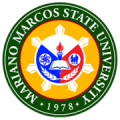<P><FONT face="Verdana, Arial, Helvetica, sans-serif" size=5><STRONG>13 graduate, undergrad programs undergo AACCUP survey visit</STRONG></FONT></P>
NINE GRADUATE programs and four undergraduate offerings underwent different survey visits by the Accrediting Agency of Chartered Colleges and Universities in the Philippines (AACCUP), Sept. 27-30, at the Laoag, Batac, and Currimao campuses of the university.
The Ph.D. in Educational Management, Master of Arts in Education, Master in Education, and Master of Arts in Public Education offered by the Graduate School and the College of Teacher Education in Laoag City underwent a third survey visit conducted by a cluster team led Dr. Zenaida S. Lucero of the University of Eastern Philippines.
Another cluster of evaluators headed by Dr. Janet B. Quilang of the Isabela State University (ISU) assessed the Master of Science in Agriculture, Master in Agriculture, Ph.D. in Rural Development and Master of Science in Rural Development, programs offered by the College of Agriculture and Forestry (CAF). Likewise, all four programs, likewise, underwent a third survey.
Moreover, Dr. Thelma T. Lanuza, also from ISU, led the team to evaluate the Master of Arts in Nursing offered by the College of Health Sciences. Like the others, the program was also assessed for Level III.
The four programs which underwent preliminary survey were evaluated by two cluster teams. The first cluster, chaired by Dr. Conchita R. Cauinian of ISU, took over the home technology and development communication programs offered at CAF. Dr. Monina M. Fandialan of the Central Luzon State University, on the other hand, led the other group that assessed the fisheries and marine biology programs at the College of Aquatic Sciences and Applied Technology.
On the whole, the group from AACCUP was composed of 44 high-caliber faculty members and officials from reputable state universities and colleges in the country. They were led by Dr. Nilo E. Colinares, AACCUP survey consultant.
The accreditation activity kicked off with an opening program at the Teatro Ilocandia where the evaluators were introduced to students and faculty members and got a glimpse of MMSU through a movie presentation. They were further presented with a spectacular show by the university’s student cultural group.
Accreditation activities such as examination of documents, ocular inspection, class observations, visit to extension and research sites, interviews with students, alumni, LGUs, and other stakeholders went on for three days.
Exit conferences in the colleges were conducted few hours before the closing program on Friday, Sept. 29. Here, the evaluators presented their assessments such as the strengths of the programs and the areas needing improvement. They, likewise gave their recommendations for the improvement of the programs.
Nature of accreditation
Accreditation is viewed as a process by which an institution at the tertiary and graduate levels evaluates its educational activities, in whole or in part, and seeks an independent judgment to confirm that it substantially achieves its objectives and is generally equal in quality to comparable institutions.
Aside from being program-focused, accreditation is based on standards of the accrediting agency, which are normally higher that those set by the Commission on Higher Education (CHED) and other appropriate agencies such as the Professional Regulation Commission. It is also voluntary on the part of the higher education institution that may want to be accredited; it is an evaluation by peers; and non-governmental.
The AACCUP
The accreditation of curricular programs is the main function of the AACCUP. Organized in 1987, although officially registered with the Securities and Exchange Commission on Sept. 4, 1989, AACCUP has been the youngest of four accrediting agencies in the country until late 2003 when the Association of Local Colleges and Universities-Commission on Accreditation, Inc. was created. The agency aims to make the attainment of quality in education an integral part of the higher education system, more particularly among chartered state universities and colleges in the Philippines through a sustained program of internal and external assessment.
Benefits of accreditation
Accredited programs lend prestige to accredited schools justified by the possession or quality standards and commitment to maintain these at a high level. These also help parents know which program they may send their children for quality education and make possible for those proposing funding and all those who are to fund to know what to support and how much support is needed. The process of accreditation also makes possible for an evaluated program to know its strengths and weaknesses and in what aspects it needs to develop.
Accreditation has also been used as a criterion in administrative decision making in a variety of ways such as: applicants for teaching in the Department of Education who are graduates of accredited programs are granted credit points; used as a criterion in the leveling of SUCs and in the selection of schools for foreign students; some agencies consult AACCUP about the accreditation status of colleges and universities attended by their employees for purposes of promotion; and sometimes foreign universities consult AACCUP regarding the accreditation status of programs attended by Filipino students seeking admission.
The CHED provides, as a benefit to institutions with accredited programs, accreditation level used by the commission itself and the Department of Budget and Management in recommending budgetary allocation (for public sector institutions). These also enjoy priority in terms of available funding assistance from CHED for scholarships and faculty development, facilities improvement, and other development programs.
AACCUP has also taken cognizance of potential incentives to be granted to accredited programs/institutions such as: as rational basis for budgetary requests, for normative funding, as a factor in the selection of centers of excellence/development; and for SUCs’ leveling, among other incentives.
Priority program of Pascua administration
The accreditation activity is in line with President Miriam E. Pascua’s 10-point agenda and is expected to support the university’s aim for more centers of excellence/development and to strengthen external linkages as a strategy for generating funds to augment the meager resources of the university. In her investiture speech, Dr. Pascua said: “With two centers of excellence of excellence and two centers of development, we have to have more and more programs recognized as such and so we have to give priority to accreditation.”
Gallery
Dear Valued Client,
We will be introducing our newly upgraded website on October 31, 2024 – offering faster access, improved navigation, and enriched content for students, faculty, partners, and stakeholders. Experience how we cultivate minds and transform futures at MMSU.

 CAFSD
CAFSD CASAT
CASAT CAS
CAS CBEA
CBEA CCIS
CCIS COE
COE CHS
CHS CIT
CIT CTE
CTE COM
COM CVM
CVM Graduate School
Graduate School



_91c2e13bde54cafe009c166f9aa4199f.jpg)
